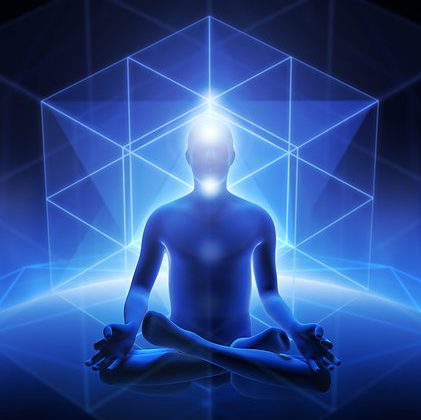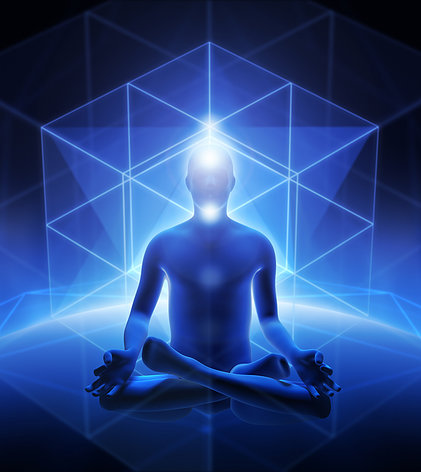The five kleshas are considered to be afflictions, pain bearing obstacles that assail the mind. They are described by Patanjali in chapter 2 of the yoga sutras along with a methodology as to how we go about removing these obstacles to our personal and collective evolution.
2.3 “Ignorance, egoism, attachment aversion and clinging to bodily life are the 5 obstacles”
The kleshas are;
- Avidya (ignorance)
- Asmita (egoism)
- Raga (attachment)
- Dvesha (aversion)
- Abhinivesa (clinging to life)
They have been translated as passions, conflicting emotions, disturbing conceptions, compulsions. There is no perfect translation as they are neither solely emotion nor thought. They are simultaneously both thought and feeling, but more basic than either. The belief is that certain powerful reactions exist within the mind which have the capacity to take hold of us and drive our behaviour. As an example, when we are angry we tend not stop to question our reality. We can become completely caught up in the overwhelming emotion. We are reactive and become identified with the overriding feelings. Kleshas are so intense that they propel us mindlessly into actions that result in suffering for ourselves and others caught up in our dramas. When angry, we can be quite literally consumed by the anger, and in the moment do not care what the consequences of our words or actions will be. We feel totally justified in our actions. When Freud talked of instincts or drives he was talking about a similar concept, that there are energies that permeate us, which can grab our entire being and shape who we become.
In the course of living, we identify with these reactions and they become the means by which we both hide our true nature and attempt to cope with a world of ceaseless change and unpredictability. They are the fundamental obstacles /afflictions that prevent us from attaining our ultimate reason for being, that of Self realisation or enlightenment, union with the divine, absolute truth. These afflictions are all rooted in ignorance and are therefore illusory in nature. They cause suffering as they distort our mind and our perceptions thus affecting how we think, feel and behave and are said to bind us to the endless cycle of death and rebirth preventing us from attaining enlightenment. They are alleviated by means of continued Yogic practice, but not uprooted totally. They remain hidden in the form of seed. The seed may sprout again the moment it finds the right conditions and a favourable environment. Iswara, however, is free of these afflictions The practice of Yoga-Samadhi uproots Avidya and attainment of Asamprajnata Samadhi (Absolute-Experience) destroys the seeds.
The kleshas can be seen as a chain reaction of events, Avidya, ignorance, begins this process; it is considered to be the main cause of all our troubles and consequent suffering. It is a lack of awareness of the Self which leads us to identity with the self, body-mind. Egoism is the result of this ignorance. Egoism fills us with desires and aversions, and veils our true nature. The mind becomes restless as the peace and contentment of the Self is lost. The ego forms attachments to external objects or circumstances, looking to them to bring happiness. This becomes a ceaseless cycle of pursuing one pleasure after another whilst, at the same time, attempting to avoid anything we believe will bring pain or suffering. We cling to bodily life as this is the vehicle through which the mind through the senses experiences the pleasure and external gratification we seek.
“The obstacles and stumbling blocks on the path towards realisation can easily be overcome once an intelligent and comprehensive understanding of them has been reached. It should always be borne in mind that failures are but stepping stones to success” Swami Vishnu Devana
The five kleshas may be subdivided into 3 categories; intellectual (avidya and asmita), Emotional (raga and dvehsa) and instinctive (abhinivesha)
Intellectual Kleshas- Avidya and Asmita
Avidya
This klesha is most commonly described as ignorance but perhaps it may be better thought of as misapprehension. Ignorance implies a complete lack of understanding, whereas misapprehension implies a misunderstanding which leads to errors in our comprehension.
Patanjali 2.4 Ignorance is the productive field for the other four obstacles, whether they be dormant, feeble, intercepted or sustained
Avidya is considered to be the cause of the other four obstacles whether they are latent, in the process of elimination or in full operation.
Dormant; a klesha has not yet found the circumstances favourable to its manifestation and we do not encounter it.
Feeble; the klesha is experienced in a mild form. Sadhana weakens its hold. (Sadhana literally is "a means of accomplishing something" . It is considered to be a disciplined and dedicated spiritual practice or learning for the purpose of transcending the ego. Yoga provides such a vehicle.)
Intercepted/scattered kleshas are oscillating in nature. This represents the effort to control the kleshas by yoga practices
Sustained. Kleshas are acting unhindered and are fully expressed
All afflictions are modifications of avidya. It is ignorance alone that pervades the other four afflictions. The kleshas manifest according to the quantitative and qualitative manifestation of avidya. They are found existing simultaneously with avidya disappearing when avidya disappears. It is only then that we can experience the Self
2.5 Ignorance is regarding the impermanent as permanent, the impure as pure, the painful as pleasurable and the non self as Self
Avidya is the misconception of our true reality, the confusing of the permanent, pure, blissful Self with that which is temporary, impure, painful and the not-self. Ignorance creates delusion which veils the knowledge of the Self. Without experiencing our own true nature, we cannot realise that this same divine Self exists in all things. In ignorance we create a sense of separateness from each other and the Absolute. This is the ego, the sense of personality, desire, aversion and attachment. The “I, me, mine” syndrome.
Avidya is the constant reference to ourselves as the body and the mind without the realisation that we are more than this. Most of us become very attached to our bodies and our minds and define who we are through these facets of the self. The sutras guide the way to discovering that we are so much more. We even have an expression in our culture of ‘losing my mind’ which has a very negative connotation. Avidya can be summarised as a misapprehension of who we truly are.
In life misdirection comes in such forms as name, fame, beauty, romance, youth financial security, career. These goals are harmless if we remember that they are limited and cannot bring the permanent joy and peace that we are all searching for. These goals become harmful and they cause of much suffering if they are considered to be sources of unshakeable happiness. Sadly I feel this misdirection and is inherent in our culture and supported through the media and marketing. Many of us have the foolish belief that I’ll be happy when... I have a new job, new car, a new house, new clothes, have lost weight etc... Marketing leads us to believe we'll be happy if we drink a particular beverage, eat a particular food, live in a bigger house, drive a Mercedes etc In order to rid ourselves of this ignorance we need to be able to recognise its manifestations and identify signs of ignorance as they appear.
Though, deep down, we know that everything in nature changes due to the passing of time and circumstances changing, through our misapprehension, we mistakenly believe that the good times will continue and that painful experience will never end. The only permanent unchanging reality is Purusha, everything else is temporary. Purusha in Sanskrit means man, spirit, self, consciousness and can be considered to be the eternal authentic spirit, the Universal Principle of which we are believed to be a part. The soul, pure consciousness.
The second manifestation of ignorance is mistaking the impure as pure. Purusha is not composed of, limited or affected by any elements and does not evolve. Anything that undergoes change cannot, therefore, be Purusha. Over and over people deify and idolise fame,power, money looking to them to ultimately provide happiness, peace and contentment yet all of these ideals will change. When we find ourselves idolising limited goals we can be sure that avidya is at play.
As human beings, we often mistake painful experiences for pleasant ones. To be able to discern the difference we need to remember the lessons of experience. Many painful experiences begin pleasantly only to become painful in time. The pleasure we get from them is not permanent. As an example, disconnection with our beautiful bodies and what they need to thrive and be in alignment with nature is an increasing problem reaching endemic proportions in western populations; the short-lived pleasure of indulgence of sugary overly processed convenience foods combined with a sedentary lifestyle may lead to a lifetime of ill health, poor self image and societal judgments. Short term gain for a lifetime of pain.
This sutra does not however imply that all pleasurable experiences result in pain or that all painful ones result in pleasure but it attempts to remind us that the true and lasting impact of any experience cannot necessarily be assessed from our initial reaction to it. Experiences are not to be valued according to their initial painful or pleasurable impacts but by whether they lead ultimately to a lessening of ignorance and the revelation of our true nature
We wander through lifetimes searching for that which will bring us permanent peace, forgetting that the Self is “nearer to us than anything else, is indeed nearer than a son, dearer than wealth, dearer than all beside” Brihadaranyaka Upanishad
A sign that ignorance is losing its influence on us is when our habitual identification with the external possessions and achievements begins to diminish. We begin to realise that we are not better people if we have them or lesser people if we don’t. Our true nature is beyond all these conditions.
Asmita
Asmita, egoism, arises from avidya. Through avidya we identify with our body, senses and mind seeing ourselves as separate to everything and everyone else. It’s a perception which is very self-oriented and ego bound, It is an illusory personality, a mask we wear which we hide behind disguising what we really are. In this state of forgetfulness we experience ourselves as finite, limited and temporal. We forget our true divine nature We have created a limited perception of ourselves which we then identify with believing it to be us, but it is not us. Asmita can, thus, be considered to be a case of mistaken identity.
Patanjali 2.6 Egoism is the appearance of identification of the subjective Seer with the objective instrument of seeing
The creation of our personality is due to the identification of the knower with the instruments of knowledge. Perhaps it is our job or our clothing or our cultural background that we feel defines us, whatever the defining thing is, if we become attached to the definition it will impede our progress on the spiritual path and our true nature will remain uncovered. We can become trapped within the projections we have created about our lives. We focus on “I,Me and Mine-ness” and create a need to be better than other people and to be right, thus asmita may induce competitiveness in our personality. Often the cause of quarrels, conflicts, and even war.
The best remedy is unconditional love. When we experience unconditional love we let go of judging ourselves and others and we are able to be kind and compassionate. The true nature of reality is that we are all one and there is no separation between us.
Emotional Kleshas- Raga and Dvehsa
Raga
Raga is the attraction and attachment to pleasure. Raga encompasses our passions, desires, wants, pursuit of pleasures and attachments to objects of the senses.
2.7 Attachment is that which follows identification with pleasurable experiences
The series of events that lead to attachment may begin quite innocently; we might partake in an activity or acquire an object that brings us pleasure. We identify the activity or object as the source of our resultant happiness and crave to repeat the experience. We then expend time, energy and resources to repeating this pleasurable experience. We want something because our experience tells us it was pleasant at some time in our past. This causes us to hotly pursue things we don’t have and wish to possess and to keep things we no longer need. This burning desire for pleasure creates mindless actions and when we cannot get what we want we suffer.
The problem with being attracted to pleasurable things is that even when we do get them,we feel forced to repeat this relentless pursuit, we don’t want the pleasure to stop and so become trapped in an endless cycle of searching out things that make us happy. Such pleasures are usually fleeting in nature and when the person / situation / state making us happy changes we experience suffering. Therefore pleasure in the worldly sense is ultimately temporary and unsatisfactory and will not lead us to lasting happiness and joy.
Everyone of us has attachments to something, for example to our homes, the people we love, items we possess. However we are only ever guardians of things in this lifetime, nothing really belongs to us, everything in this life is on loan. We may have attachments to beliefs and lifestyle choices. One of my teachers encourages shaking things up from time to time; if you don’t usually eat a particular food for health reasons, eat it, if you have something you know you tend to over indulge in, stop for a while if you don’t dance, dance etc. It helps us to break patterns so we don’t become identified with them and allow them to define who we are.
In our asana practice we may become attached to specific postures that we enjoy, we can choose to relinquish these attachments and challenge ourselves to practice asanas we find more challenging or less enjoyable, David Life (from Jivamukti Yoga) points out that if we only ever do things that we like and avoid that which we find challenging or don’t feel like doing we will stay the same. The spiritual adept wishes not to stay the same but to keep growing and evolving but does not become attached to the outcome; they have learnt to relinquish the fruits of their labour also discussed in the Bhagavad Gita.
5.12.Those whose consciousness is unified abandon all attachment to the results of action and obtain supreme peace. But those whose desires are fragmented , who are selfishly attached to the results of their work are bound in everything they do”
2.62-5 “When you keep thinking about sense objects, attachment comes. Attachment breeds desire, the lust of possession that burns to anger. Anger clouds the judgment; you can no longer learn from past mistakes. Lost is the power to choose between what is wise and what is unwise and your life is an utter waste. But, when you move amidst the world of sense, free from attachment and aversion alike, there comes the peace in which all sorrows end, and you live in the wisdom of the Self”
Dvesha
2.8 Aversion is that which follows identification with painful experiences
Dvesha is closely linked to Raga; it is an aversion to the unpleasant, an avoidance of uncomfortable situations, feelings and experiences. We remember a difficult time or experience and we are afraid to repeat it so we reject or avoid the people, thoughts and environments that relate to that experience assuming that they will bring us pain and suffering again. If we cannot avoid the things we dislike, we suffer; even thinking about the unpleasant experiences produces suffering; we don’t actually have to encounter the experiences directly. Dvesha also causes us to reject things we are unfamiliar with. New experiences, places, a change in the way something is done at work to name but a few. This is the root of the familiar phrase “better the devil you know”
Transformation of dvesha comes by letting go of attachment to our preferences. When we move beyond both raga and dvesha we move into a place of equanimity where we are less reactive and more accepting of life’s ups and downs and more creative in our responses to them. We still experience the emotions but in a much more mindful and resourceful way. When we take a chance and face our fears, or in the words of Susan Jeffers, we “Feel the fear and do it anyway”, we may be pleasantly surprised by what gifts life bestows upon us. Sometimes we really have to embrace these hidden opportunities and reach beyond our comfort zone in order to really grow and fulfill our true potential
Instinctive Klesha Abhinivesha
Abhinivesha
2.9 Clinging to life, flowing by its own potency due to past experience exists even in the wise
Abhinivesha is defined as either clinging to life or fear of death. It is the deepest and most universal klesha which flows by its own potency and is the hardest to break. We all know that someday we will die, yet our fear of death can be all encompassing, dictating our day to day lives, sometimes at a very deep, unconscious level. I used to be phobic of death until my mid twenties when a life experience radically altered my thinking. I remember practicing dvesha intensely, leaving rooms if the words death, coffin, funeral or anything else on the subject where so much as whispered. Now I can honestly say that on some level I am looking forward to the experience of transformation that I now believe death to be, as opposed to the complete non sensical annihilation I once perceived it to be. I still have my attachment to life in place in that I’m in no rush and still take precautions to safeguard my wellbeing; wearing seat belts, eating foods I believe are good for me, practicing yoga to name but a few but I no longer go into a panic at mere mention of the subject. If we fear death we cannot fully live life, if we fear life we cannot fully embrace death when it's time comes as it must. When we fully embrace death and are able to enter this transition willingly and unafraid we possess the knowledge of life and death. Yogic philosophy teaches the doctrine of reincarnation, the belief that nothing ever dies it just transforms. Physical death is thought not to be an end but merely one more event in a continuing progression of the souls evolution in its path toward fulfillment of divine destiny
Abhinivesha is the intense desire of sentient existence which is inherent in all living beings; it is self perpetuating and known even to the wise. Life instinct, as opposed to a death instinct cannot exist as in one who has not experienced the nature of the death instinct thus by this life instinct, we have to conclude that death has been experienced in former lives and its subconscious impression remains buried deep within our minds driving this aversion to death. We cling to life only because we fail to perceive the seamless continuity of consciousness which cannot be broken by death. If we truly knew the potential within ourselves there would be no fear of death because we would know our true nature.
Whilst abhinivesha certainly does describe a fear of the death of the physical body, it also describes the fear of loss, which comes with all the mini-deaths we experience in day to day life and it can, therefore, also be considered to be insecurity or a fear of what is to come. For example, the end of youth, the termination of a job, and the end of a relationship could all be described as mini deaths. We cling onto such phenomenon because we are scared of the unknown. At the core of our hesitancy in life is fear and abhinivesha explains why we often avoid risk or why we act without courage. Anytime we encounter uncertainty we are experiencing abhinivesha at play, we may have doubts about who we are, where we are in life, how other people perceive us and we desire to stay young, getting old scares us. This klesha ultimately is about not wanting to let go of the ego, our greatest fear is that we will cease to exist and lose our identity, when we identify with our truth we expand and we gain everything. We become one.









